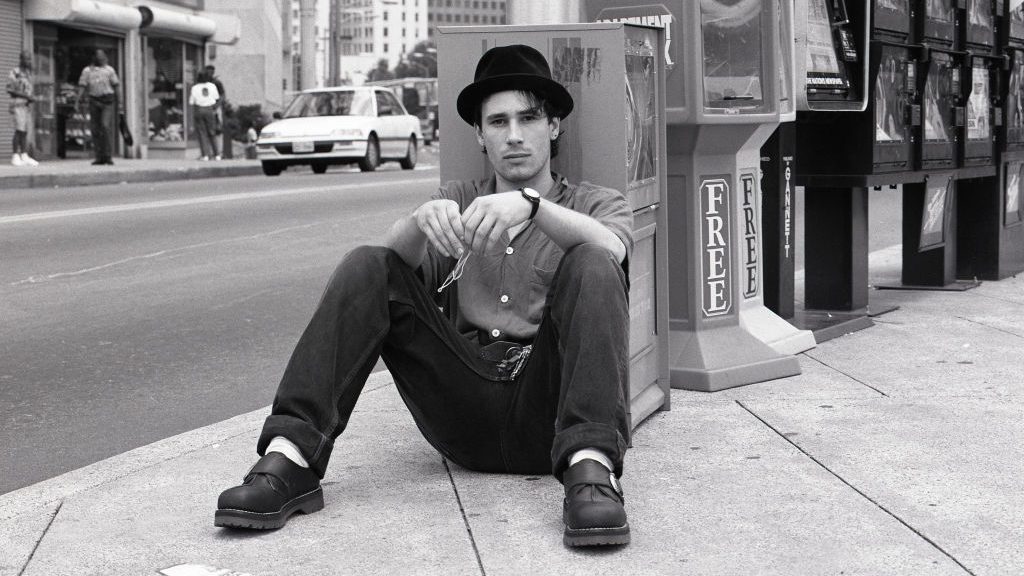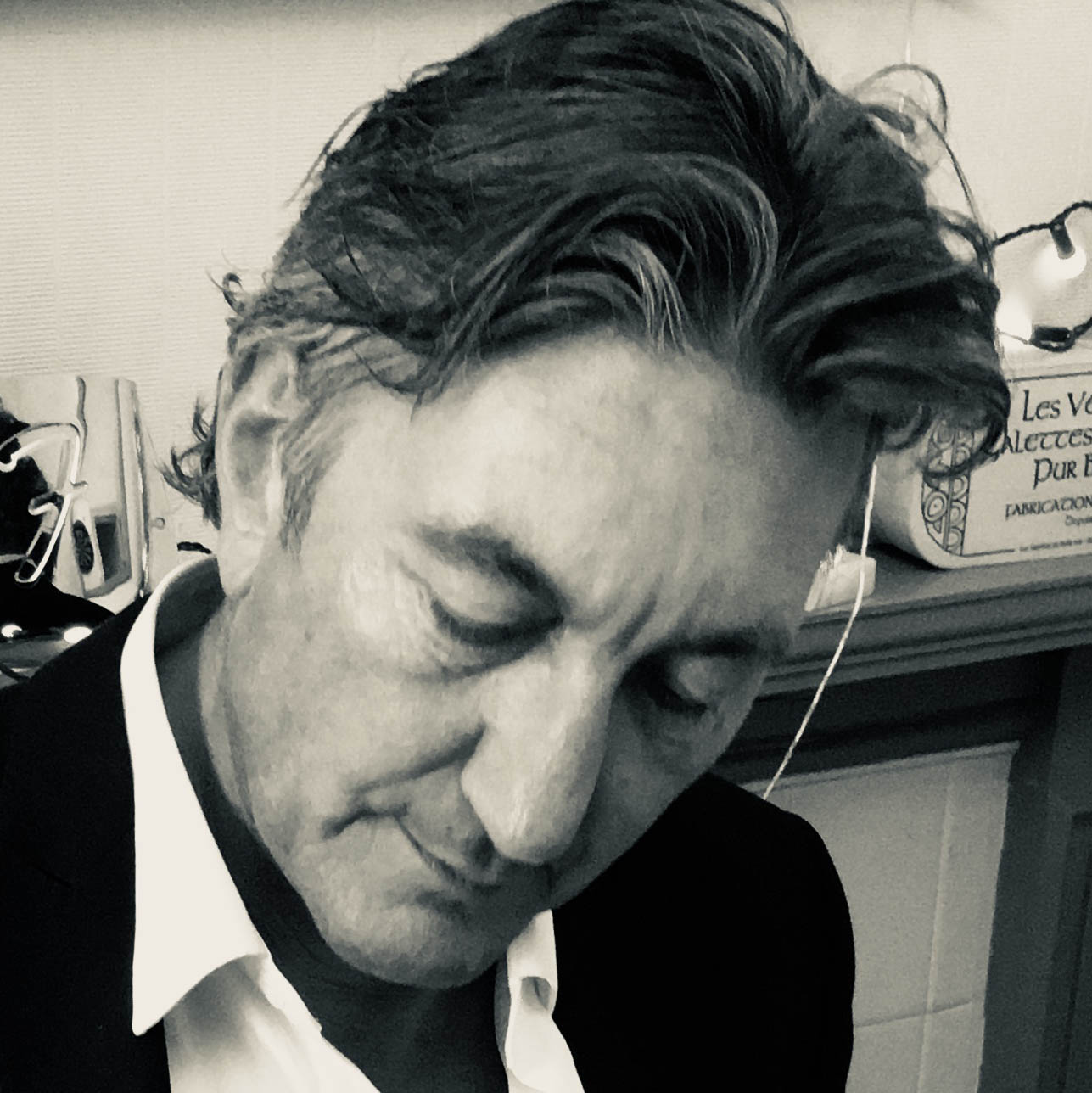“It’s just about being alive. It’s about the voice carrying much more information than words do”: The power and intensity in Jeff Buckley’s greatest song
A haunting and deeply personal ballad

Anyone who has delved through the back catalogues of artists who died tragically young over the decades will be struck by the sad truth that most never lived to see how cherished their music would become.
Such was the case with Jeff Buckley, who released his only album Grace in August 1994 yet died three years later at the age of thirty, drowned while swimming in the Wolf River, a tributary of the Mississippi.
While the album was lauded on release, it was a commercial flop. It wasn’t until the beginning of the next millennium that Grace began to be recognised for the astonishing debut that it is, with its sweeping choruses, swells of emotion, bombastic arrangements and Buckley’s pristine, soaring voice spanning four octaves.
In some ways, the album will always be best known for Buckley’s majestic cover of Leonard Cohen’s song Hallelujah.
But Grace also contains a collection of Buckley’s own songs that are up there with the very finest. One of these is Lover, You Should've Come Over. It’s a haunting and deeply personal ballad and the song that many regard as Buckley’s true masterpiece.
By the time he began recording Grace in 1993, Buckley had accrued a wealth of experience as a musician. The son of renowned singer-songwriter Tim Buckley, he was raised by his mother and stepfather in California and went on to work as a guitarist with numerous bands in the Los Angeles area.
But it took a move to New York in the early ’90s to really kick-start his career.
Get the MusicRadar Newsletter
Want all the hottest music and gear news, reviews, deals, features and more, direct to your inbox? Sign up here.
In April 1992 he played his first gig at a small venue called Sin-é in the East Village. Within months there were queues to get in and record company executives became a regular sight, stepping out of limos before being briskly ushered into the packed venue.
In the end, it was Columbia Records – label home to Dylan and Springsteen – that would sign Buckley in October 1992, for a three album deal worth nearly one million dollars.
Stylistically, Buckley’s music was distinctive and unique, a kind of eclectic folk that encompassed classical and jazz. As Stephen Thomas Erlewine wrote in a review for AllMusic: “Grace sounds like a Led Zeppelin album written by an ambitious folkie with a fondness for lounge jazz.”
Bearsville Studios in Woodstock, New York, was the facility chosen for recording the debut album with producer Andy Wallace, who had previously worked as mixer and engineer for Nirvana, Slayer and The Cult.
In the summer of 1993, Buckley assembled a band consisting of bassist Mick Grondahl and drummer Matt Johnson and spent several weeks rehearsing in New York City, before heading up to Woodstock in September of that year. By the time the trio arrived at Bearsville Studios, they were a tight, formidable unit.
Buckley initially found the process of recording to be wholly at odds with his improvisational live performance style.
"It's not like a live show where you play it and it just disappears into the air like smoke,” he told Rolling Stone. “It's like painting, sound painting. It's in a crystallised form, so it's very nerve-wracking: which brain cell do I put down here forever and ever?”
Despite such misgivings, he thrived in the studio, experimenting at length with recording techniques and arrangements. In addition to guitar, he was adept on piano and harmonium and it’s the latter instrument that he plays on the intro of Lover You Should’ve Come Over. It’s a beautiful opening passage, droning and ethereal.
42 seconds in and Buckley, bassist Grondahl and drummer Johnson start up, with a light, uncluttered groove in 6/8 time. They are joined by Guyanese-born composer, producer and musician Loris Holland, who contributes inspiring swells and stabs of organ.
Buckley reportedly had misgivings about his songwriting ability, but it’s hard to fathom why. Lover You Should’ve Come Over is an impeccably crafted composition on which all the elements meld in one gloriously cohesive whole. Written in D major, it glides along at 120 bpm and there’s a gentle, carefree feel as Buckley begins to sing.
The acres of space within the mix highlight the nuances and textures of Buckley’s vocals. As the band kicks in, there is a deep, rich reverb on the rim clicks of the snare, which are set back in the mix. When the fills start up at the chorus, the snare is placed prominently and upfront.
Andy Wallace positions the guitars perfectly in the mix, with the vibrato of the electric complementing the fuller sound of the acoustic.
Lyrically, it’s heartfelt and poetic, and the opening lines set the scene for what is to come. “Looking out the door I see the rain fall down upon the funeral mourners/Parading in a wake of sad relations as their shoes fill up with water…”
Like many songwriters, Buckley kept notebooks everywhere. “I’m always daydreaming,” he once said when asked about his songwriting. “It’s just about being alive, my songs. It’s about the voice carrying much more information than words do.”
While Buckley was often elusive about revealing the subjects of his songs, it’s widely believed that he wrote Lover, You Should’ve Come Over about the break-up of his relationship with singer and artist Rebecca Moore.
The couple met when Moore was working at the tribute show to Buckley’s father Tim, at the Church of St Ann and the Holy Trinity in Brooklyn Heights, New York in 1991.
The day before his death, Buckley left a message on Moore’s answerphone that said, “Think of me and smile … I’m gonna work my ass off, baby … I’ll see you on the other side.”
Despite the slightly ominous closing line, it’s this message that convinced many fans that Buckley’s death could not have been suicide.
Buckley spoke about the inspiration for Lover, You Should’ve Come Over on occasion during his 1995 tour. He mentioned the origins of the song during a show in Corregio, Italy, on 17 July 1995. "I wrote this song while lying, listening to the telephone in my apartment,” he said, “but she never called."
It’s a simple chord pattern of D–C–Em on the verse, with spartan strumming of an acoustic at the beginning and flourishes of electric.
Opinions vary about exactly which guitars Buckley used on this track, but the electric is almost certainly his borrowed blonde 1983 Fender Telecaster, which he had refretted and modded with a Seymour Duncan Hot Lead Stack in the bridge and a mirror pickguard.
This guitar would eventually be acquired by Matt Bellamy from Muse in 2020, who said it “has a sound like nothing I’ve ever heard”.
At 1:18 there’s a beautiful chordal shift on the pre chorus to
C#m7b5–F#7+5–Bm–D–G. Buckley’s voice has a warm, velvety tone and a rich vibrato. “But tonight you’re on my mind, so you’ll never know,” he sings over a D–C–Em progression.
By the second pre chorus at 2:06, his voice is opening up in power and emotion.
Buckley’s writing has an edge and intensity. There’s a curiosity and restlessness at play, building up the tension through melodic twists and turns and the sheer force of his voice.
Just as his melodic structures confound expectations, so too does his phrasing avoid the obvious, with words seamlessly stretching and spilling over stanzas.
On the song’s bridge at 2:18, Buckley ascends through the octave and his vibrato is far more pronounced. “Sometimes a man gets carried away when he feels like he should be having his fun.”
Rather than resolving, the first chorus at 2:48 keeps building and ascending throughout, with Buckley’s vocals gliding effortlessly into falsetto.
By the time the second verse comes round, the song is almost three and a half minutes in, but it doesn’t feel like it. The whole track then drops down to just the reverb-heavy rim click, a few swells and stabs on the B3 organ and some mellow vocal cadences from Buckley.
From that point on, the song just builds in power. Four minutes in and Buckey is referencing Shakespeare in a wry twist on Richard III’s request for a horse: “It’s never over, my kingdom for a kiss upon your shoulder”.
A dense swathe of backing vocals underpin Buckley’s voice and the whole band ramps things up, with swoops of organ, big fluid drum fills, swooping bass runs and Buckley’s cranked-up Tele.
At 5:06, a heavily-distorted guitar line enters the mix, underpinning Buckley’s freeform falsetto vocal lines, which by this point seem fuelled solely by feel and emotion rather than the constraints of a lyric sheet.
Lover, You Should’ve Come Over lasts just over six minutes and thirty seconds, and much of its power rests on the strength of the live performance of Buckley and his band in the studio. The song is also as much a testament to his prowess as a writer as it is to his innate skill as a performer.
In the decades that have followed his tragic death, critics and fans have been quick to single out Lover, You Should’ve Come Over for praise. In a 2019 review of the song, Jacob Nierenberg of Consequence Of Sound wrote that the song serves as a reminder that Buckley was making “some of the most unique and unabashedly beautiful music of the ’90s”.
It was a sentiment echoed by Jim Beviglia of American Songwriter magazine in August 2021. “Even with a hint of grunge in the guitars, Lover, You Should’ve Come Over is essentially a soul ballad, its intensity mounting from a low boil early to emotive eruptions at the end. Jeff Buckley’s haunting singing voice will never be forgotten, even considering the very short time it graced the world’s stage. Lover, You Should’ve Come Over proves how badly his songwriting is missed as well.”

Neil Crossley is a freelance writer and editor whose work has appeared in publications such as The Guardian, The Times, The Independent and the FT. Neil is also a singer-songwriter, fronts the band Furlined and was a member of International Blue, a ‘pop croon collaboration’ produced by Tony Visconti.











